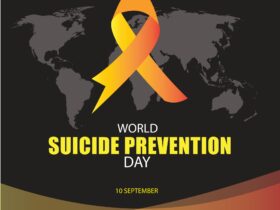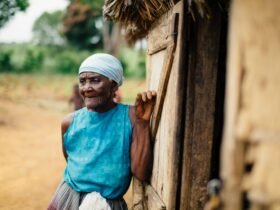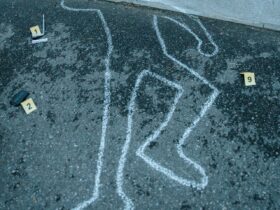Common forms of anxiety disorders
Anxiety is a common occurrence when a person faces potentially problematic or dangerous situations. It is also felt when a person perceives an external threat. However, chronic and irrational anxiety can lead to a form of anxiety disorder.
There are different types of anxiety disorder depending on their causes or triggers.
Generalised anxiety disorder
A person who has this type of anxiety disorder usually experience prolonged anxiety that is often without basis. More accurately, people with generalised anxiety disorders cannot articulate the reason behind their anxiety. This type of anxiety usually last for six months and often affect women. Due to the persistence of the anxiety, people affected with generalised anxiety disorder constantly fret and worry. This results to heart palpitations, insomnia, headaches, and dizzy spells.
Specific phobia
Unlike someone with generalised anxiety disorder, a person who has a specific phobia experiences extreme and often irrational fear of a certain situation or object. When exposed to the object or situation they fear, people with specific phobias exhibit signs of intense fear like shaking, shortness of breath, heart palpitations, and nausea. Common specific phobias include fear of heights, enclosed spaces, blood, and animals. The fear a person with phobia feels can be so extreme that he or she may disregard safety just to escape the situation.
Panic disorder
Also known as agoraphobia, panic disorders are characterised by recurring panic attacks which are often unexpected. Symptoms are usually shaking, chest pains, dizziness, fear of losing control, and reluctance of being alone. People with panic disorder are aware that their panic is usually unfounded and illogical. This is why they avoid public situations and being alone. A panic attack can be so severe that people may lose control and hurt themselves.
Social phobia
Alternatively, called social anxiety, a person with social phobia may exhibit similar symptoms like those of panic disorder especially in social situations. Shaking, dizziness, shortness of breath, and heart palpitations may ensue when a person with social phobia finds his or herself at the center of attention or in the company of many people, regardless whether they are strangers or not.
Obsessive-compulsive disorder
People with obsessive-compulsive disorder experience anxiety caused by a persistent obsession or idea. They tend to avoid experiencing anxiety by resorting to repetitive actions or behaviours that prevent anxiety. For example, a person who is obsessed about cleanliness may experience anxiety at the mere sight of a vase placed slightly off-center. To prevent anxiety, he or she will clean and organise everything compulsively or without reason.
PTSD
Post-traumatic stress disorder (PTSD) may occur after a person experienced a severely traumatic event. He or she may relive the experience in his or her mind which causes stress and anxiety. If a person with PTSD comes into contact with stimuli (any object, person, or situation) that he or she associates with the traumatic event, he or she may literally re-experience the event by crying uncontrollably, panicking, or losing control. Subtler symptoms include insomnia and avoidant behaviour. PTSD may manifest itself immediately after the traumatic event or even years after.
Determining the type of anxiety disorder a person has is crucial to seeking treatment and recovery. Techniques and methods that are used to help a person cope with a certain anxiety usually target not only the management of symptoms but coping mechanisms when exposed to triggers. Only after thorough diagnosis can treatment and recovery for anxiety disorders really commence. Effective treatment typically involves a combination of medication and psychotherapy (talk therapy).
Difference between fear and anxiety
The difference between fear and anxiety lies in the nature of the threat and how immediate or uncertain it is:
Fear:
- Immediate, real threat: Fear is an emotional response to a clear and present danger. It arises when we perceive an actual, immediate threat, such as encountering a dangerous animal or being in a car accident.
- Focused and short-term: Fear tends to be more focused on a specific event or situation and typically resolves once the danger is removed.
- Purpose: It’s a survival mechanism designed to prompt quick action, like fight, flight, or freeze, to protect oneself from harm.
Anxiety:
- Vague or future threat: Anxiety, on the other hand, is more about a feeling of worry or unease regarding something that might happen in the future, even when there is no immediate danger. It’s often related to uncertainty or perceived threats that aren’t clearly defined.
- Diffuse and longer-lasting: Anxiety tends to be more generalized and persistent, affecting thoughts and emotions over a longer period. It can involve rumination over “what if” scenarios.
- Purpose: While it can be useful for anticipating challenges and preparing for the future, anxiety can become overwhelming or disproportionate, leading to stress or avoidance of situations.
In summary, fear is a response to a clear, immediate threat, while anxiety is more related to concerns or uncertainty about potential dangers or challenges in the future.





























